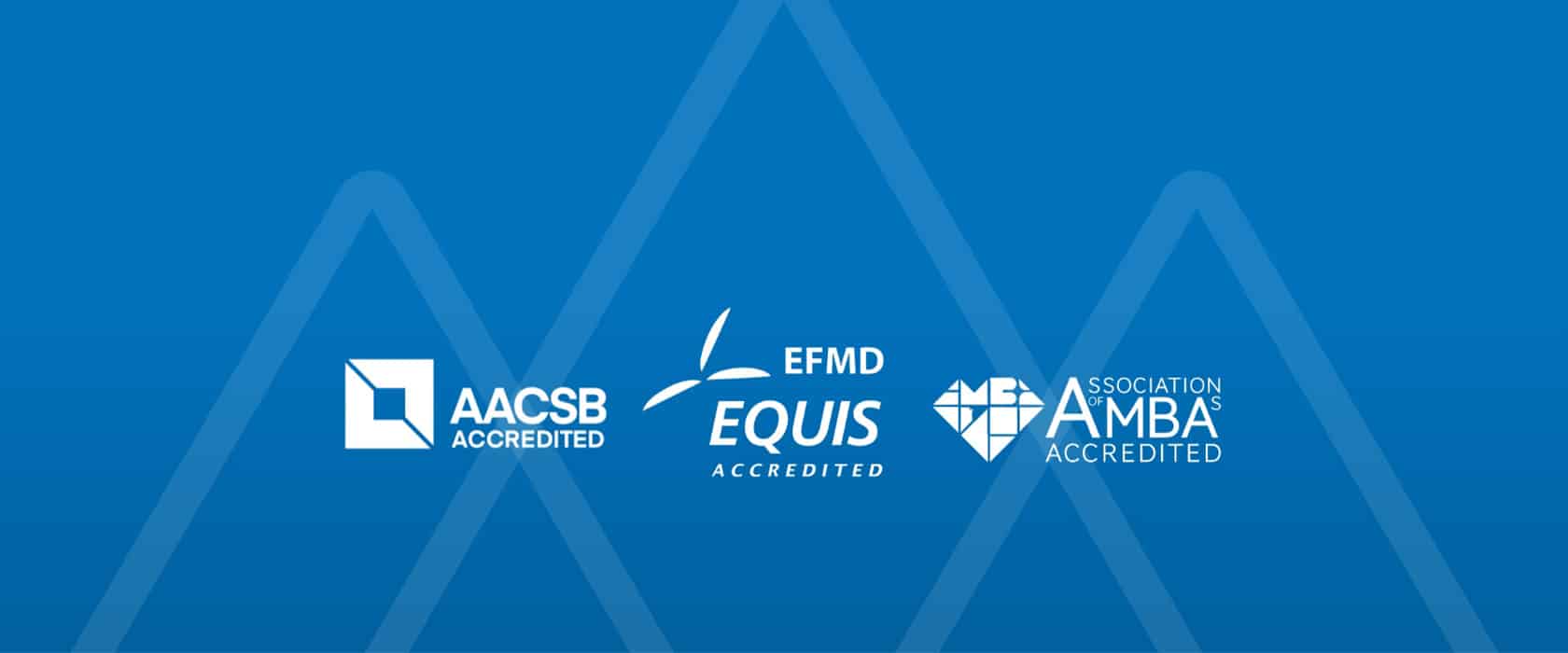Investing in an MBA is a big decision. Working out which program and school is right for you can be daunting at the outset of your information search. Many prospective students will use MBA accreditation to verify that an MBA program meets the strict standards set by trusted accreditation organizations.
This system ensures that the course covers a sufficient number of essential topics and provides students with a strong learning environment. Additionally, it covers teaching quality, faculty strength, curriculum design, and student success outcomes. This process indicates to students and employers that the degree is comparable to other respected MBA programs worldwide.
Additionally, some governments and PhD programs require accredited MBA degrees, thereby enhancing the global credibility of your MBA. Students should see accreditation as proof that the school passed strict reviews and proves that its MBA programs meet required standards.
A Mark of Quality For the Life of Your Degree
The accreditation process is highly rigorous, with many institutions dedicating entire departments to securing and upholding both international and national accreditations. Accrediting bodies conduct ongoing evaluations to ensure that colleges and universities meet evolving standards, thereby maintaining excellence and consistency across global MBA programs. Consequently, an MBA earned from an accredited institution carries significant global recognition and credibility.
Moreover, accreditation protects your investment. It demonstrates that the program delivers real-world knowledge, updated content, and a strong academic foundation. This matters when you’re planning your career, choosing a specialization, or aiming for top MBA rankings.
Accreditation can also affect visa eligibility, scholarship access, and whether you can finance your MBA with recognized aid options.
Types of Accreditation
There are different types of accreditation an MBA can hold. Institutional accreditation applies to educational institutions. Programmatic accreditation covers only the MBA or specific business program. Additionally, accreditation can be categorized by the scope of the accrediting body, such as regional, national, or specialized.
Understanding Accredited Online MBA Programs
Remote learning is growing rapidly, and accredited online MBA programs are gaining popularity worldwide. For example, IE Business School and Warwick Business School offer top-ranked, AACSB- or AMBA-accredited online MBAs.
Moreover, accreditation is vital for online programs, as it demonstrates strong academic quality and adherence to global standards. It also ensures that the remote program aligns with the on-campus version in terms of learning, faculty, and outcomes.
Finally, search official AACSB, AMBA, or EQUIS websites to find accredited online MBA programs.
How to Check if an MBA Program Is Accredited
Not all business schools display their MBA accreditation clearly on their websites. First, check the school’s website under the “About” or “Accreditation” section for official information.
Next, visit AACSB, AMBA, or EQUIS websites and search their directories for accredited schools. Then, review the Financial Times MBA rankings or other trusted lists that highlight accreditation status. If you are still unsure, contact the admissions office to inquire about the school’s current accreditation status.
Finally, avoid schools that list unverified or unknown accreditations without proof. Accreditation requires time and review, so genuine credentials are always clearly and publicly listed.
Accreditation vs. Rankings: What Matters More?
Accreditation and rankings play different roles in evaluating MBA programs. Accreditation confirms the academic quality and program standards of an institution.
Meanwhile, rankings reflect popularity, salary outcomes, diversity, and student satisfaction. Although a top-ranked school may be impressive, missing accreditation could signal potential concerns. Therefore, choose schools with strong rankings and official accreditation for the best value.
The Role of Accreditation in Employer Perception
Recruiters view MBA accreditation as evidence of rigorous training and high academic standards. In consulting, finance, and global firms, accredited MBA graduates often get priority.
However, entrepreneurs and niche professionals also benefit from accreditation, as it enhances their global credibility and trust. Therefore, accreditation supports diverse career goals and builds long-term professional value.
The Power of Picking an Accredited MBA
An accredited MBA shows your commitment to quality, career growth, and long-term success. It demonstrates that the school meets global standards in teaching, outcomes, and academic excellence. Whether you seek leadership roles, international opportunities, or specialization, accreditation ensures your degree conforms to respected worldwide standards.
Ensure that you do not make your choice solely based on rankings. Choose a program that supports your goals and challenges you to grow. When a school combines MBA accreditation with a strong curriculum, it gives your ambition the foundation it deserves.
Are you applying for an MBA? Find all the support you need on our Admissions pages.





